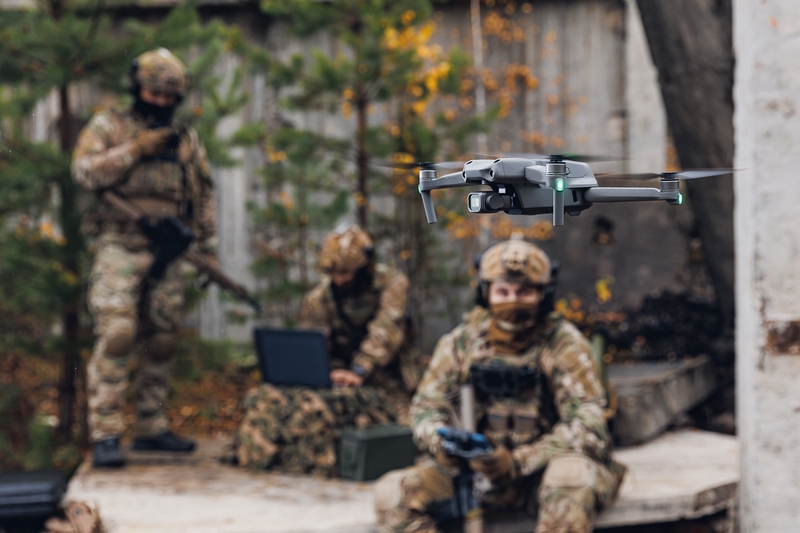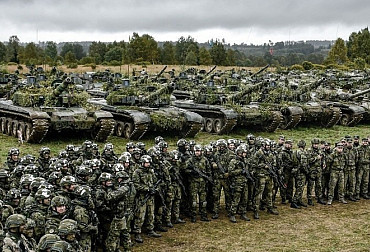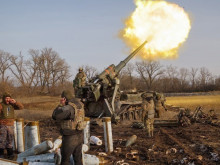Spy drones threaten Germany's strategic infrastructure
Drones have repeatedly spied on an industrial site in northwest Germany, near a decommissioned nuclear power plant and a liquefied natural gas terminal. These incidents follow security breaches at the Bundeswehr barracks in Cologne and at the allied airbase Geilenkirchen. The aim of these actions is to make the German population nervous and weaken its commitment to supporting Ukraine, as well as to undermine the rules-based international order.

Security at the ChemCoast Park industrial estate north-west of Hamburg saw its first drones on 8 August. In the following weeks, up to four drones flew over every night. According to the Neue Osnabrücker Zeitung, the last unauthorised overflights observed on the night of 21-22 August. The prosecutor's office in Flensburg is now investigating on suspicion of "intelligence activities for sabotage in connection with the repeated drone overflights of critical infrastructure in Schleswig-Holstein". The site is near the decommissioned Brunsbüttel nuclear power plant and a hastily built liquefied natural gas terminal that allowed Germany to stop taking gas via the Nord stream pipeline after the Russian invasion of Ukraine in February 2022.
The nighttime movement of the drones made them difficult to locate, and none have been successfully shot down so far. Investigators suspect that military drones, which can evade detection systems, have been deployed over German territory. The speed of the drones (information in the German press Tagesschau states up to 62 mph/h / 100 km/h) and the frequent change of altitude speak for this hypothesis. There have even been targeted approach manoeuvres to police drones.
The police deployed their own equipment against the hostile drones, but it was unable to keep up. Even special technology from the Hamburg police department failed to track the intruders and was unable to determine exactly where they were coming from. The Bundeswehr was therefore alerted and provided the prosecutor's office with radar data. Tagesschau mentions that the drones may have used civilian Russian ships in the Baltic or North Sea as bases (the 500 mi / 800 km distant exclave of Kaliningrad can almost certainly be ruled out). Some media have specifically speculated about the deployment of Orlan-10 drones with a range of several hundred kilometres.
Unauthorised drone overflights continued to occur in Germany last year. They were spotted at least 400 times near military installations, usually barracks. However, only in very few cases could the drone operators be identified. The federal counterintelligence agency BAMAD (Bundesamt für den Militärischen Abschirmdienst) investigated suspicions that the reconnaissance flights were used to monitor training courses for Ukrainian soldiers.
The overall picture is completed by incidents at the Bundeswehr barracks in Cologne and at the Allied air base in Geilenkirchen near Aachen. In the first case, holes in the fences and movements of unknown persons in the military compound raised concerns, leading to suspicions about possible poisoning of drinking water for the soldiers. However, this suspicion was not confirmed. Geilenkirchen then issued a Charlie level security alert (the second highest of the four) on 22 August, which NATO described as 'a precautionary measure to minimise the potential risk to our organisation and personnel'. An unnamed German intelligence source confirmed that the reason for the security alert in Geilenkirchen was signs of "preparatory actions for a probable Russian act of sabotage" using a drone. The tip reportedly came from an unspecified foreign intelligence service.
These threats may not be mere media sensations, as they may seem at first sight. In April this year, Bayreuth police arrested two Germans of Russian origin who, according to prosecutors, were planning to carry out sabotage attacks on German territory. To this end, they were mapping railway lines, military training areas and other Bundeswehr facilities. "These are threatening gestures designed to make it clear: Look, this is what happens when you mess with us," said Bundestag deputy Konstantin von Notz (Die Grünen).
Germany is not the only target of sabotage in recent months. In April this year, for example, someone deliberately cut a critical communications cable leading to the Norwegian air base at Evenes. Earlier, the cables of the Norwegian surveillance system that Oslo uses to monitor underwater life in the North Sea were also severed. In London, warehouses belonging to a company providing aid to Ukraine caught fire, and France was thrilled by the arrest of a man suspected of making explosive devices and planning attacks with pro-Russian motives.
The Federal Office for the Protection of the Constitution (BfV - Bundesamt für Verfassungsschutz), Germany's civilian counterintelligence agency, has long feared a Russian escalation of "hybrid warfare" (anything that does not involve direct military confrontation) against the West. Moscow's stepped-up espionage activities could be complemented by attacks on critical infrastructure. Recruitment of new "agents" is now done through Internet channels, and the Kremlin intends to use them for simple sabotage actions (e.g. arson attacks). New recruits typically come from within criminal gangs or music fans and are usually paid or blackmailed by foreign intelligence services. "All that matters is to make people and politicians uncomfortable," said one BfV officer.
These efforts represent a relatively cheap and low-risk way to try to undermine support for Ukraine in Europe. It is a means of causing disruption and sowing fear. As long as it uses proxies to achieve its goals, it will remain very difficult to trace such activities directly back to the Kremlin. "Ultimately, Russia seeks a [weak] Europe that it can dominate and in which it will pursue its goals without regard for international rules and international law. A Europe in which it will exert its power from a position of strength," explains the motives of the Russian government, according to historian Franziska Davies of Ludwig-Maximilians-Universität in Munich.
Although a drone attack on an alliance base would be an extremely bold operation, the experience of the Ukraine-Russia war has shown the difficulties modern air defence systems have in dealing with small civilian drones packed with explosives. Politicians like Konstantin von Notz are therefore calling for the swift approval of the Critical Infrastructure Protection Act (KRITIS-Dachgesetz). It will give critical infrastructure protection the maximum attention of all security authorities and modern technology that can locate and defend against illegal drones," calls the green politician.
Roderich Kiesewetter, a member of parliament for the opposition CDU, on the other hand, sees the lack of protection measures as a result of the German population's illusions about Russia. "A large part of the population and also a large part of politicians refuse to actually acknowledge that the target of the Russian war is us, our society and our liberal democratic system," Kiesewetter said. He also said that the public debate on whether the Bundeswehr is sufficiently equipped (a fact accepted by virtually the entire professional community) is indicative of a divided society.
Germany is facing a new security phenomenon in the form of drone overflights over strategic infrastructure. Ongoing investigations are working with suspected intelligence activities for sabotage, which Russia is most interested in carrying out among Berlin's geopolitical adversaries. The leaders of the ruling coalition (Konstantin von Notz of Die Grünen) want to respond to the new threat by swiftly passing a law on critical infrastructure that will clearly delineate the responsibilities of the security authorities and provide adequate technology. Equally important, however, is the long-term investment in the country's own population (education, strategic communications), which will make citizens resilient to enemy efforts to sow fear and disruption. In this case, both Germany and the Czech Republic still have a long way to go to reach a national consensus that Russia's war in Ukraine is only the beginning of the Kremlin's aggressive campaign against the whole of democratic Europe.





















